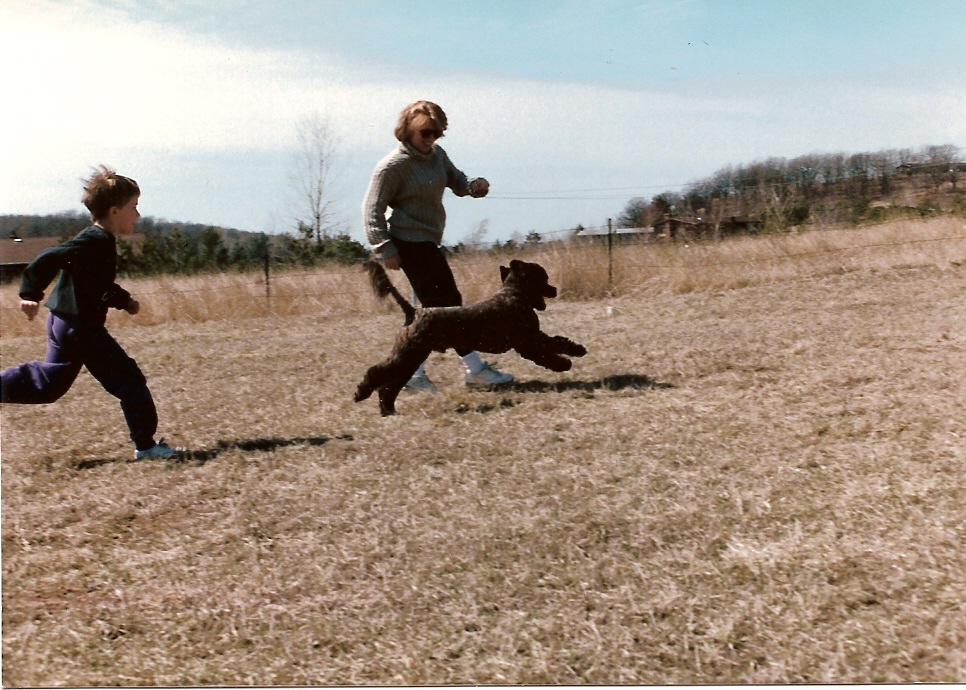
Restora PWDS--Roadmap to the Right Puppy
Roadmap to Finding the Right Puppy
Start:
1. List all the things you like to do. Every family member.
2. Go back through the list and mark the things that you'd like to do with your new dog.
3. Estimate how much time you have available to spend with a new family member. Read this: How much time does a dog take? Think about who will do what--everyone wants to walk the puppy, feed the puppy, groom the puppy. Some folks want to train the puppy. Ask the tough questions--who will get up at night during the house training period? Who will clean up after the puppy? Who will bathe, clip nails, etc.?
4. If you think you have enough time, make a list of the qualities
you want in a puppy. Compare those attributes with your list of
activities--are they going to mesh?
5. Read lots of breed standards at www.AKC.org . Then take each adjective used to describe the breed's personality and figure out what the "dark side" of that attribute is. For example, stamina = needs lots of exercise; good guard dog = barks a lot; strong retrieving instinct = mouthy, likes to carry and chew on things; attentive to people = demands attention. This is the dog that you will have if you don't have the time (see #3) to train it. Make a short list of the breeds you'd like to know more about.
6. Visit the home page of the parent clubs of those breeds. Find out what all those health issues are. Really find out--if you are going to be responsible for a new family member, you will need to know what they mean. Using PWDs as an example--
PRA is a degenerative eye disease that causes blindness.
GM1 is an enzyme deficiency that causes death.
Hip dysplasia is a laxity or malformation of the joints that can be painful, and if severe can shorten your dog's life.
IBD is a complex of digestive diseases arising from food allergies. It can be fatal.
Juvenile Cardio Myopathy is a heart deformation that causes early death.
Addison's Disease is an autoimmune disorder that arises from a spontaneous withering of the adrenal glands. Affected dogs require lifetime medication from time of onset.
Detailed information on these conditions can be found on the PWDCA website at: http://www.pwdca.org
7. Know what tests and diagnostic tools are available to help avoid these diseases. Don't just take verbal assurances--see the copies of the tests. See the copies in advance of committing to a purchase--don't wait until you have signed a contract. Know the difference between tests that have passing grades and those that simply report information.
8. Find some real, live dogs of that breed. Talk to owners. Go to dog shows. Spend time away from performance events, preferably in the dog's own home. That's the best way to see the real personality. Visit more than one. If you are looking for a PWD, contact the Area Rep near you (on the linked page, scroll down to area reps). The job of reps is to help answer questions and put you in contact with dogs and owners who aren't selling puppies, just making sure you have good information to make your decision on.
9. If you are still interested, armed with your lists from #2, #4, and #6, contact breeders. Go to http://www.pwdca.org/Puppy_List_Info/BreedersByState.htm and start calling or visiting. Take your time. Find someone who listens to you, someone you are comfortable with, someone who is doing as many health tests as they can to make sure you buy a healthy puppy. Wait if you have to--a good breeder will have a relationship with you for the next 10 to 15 years, and will only want you to have the right puppy after listening to your wish list. If you start the work of developing the dog of your dreams with the right basic material, you will be more successful and have more fun.
10. Start scouting out classes--puppy socialization, basic manners, basic obedience. Talk to dog owners whose dogs seem well behaved and ask where they train. Observe classes and see if the dogs and handlers are working as a team or in an adversarial struggle over behavior. Go to www.APDT.com , enter your zip code, and find the nearest Association of Pet Dog Trainers near you. APDT members are pledged to humane dog training methods. Resolve to train your dog early and always--the highest correlation between surrender of dogs to shelters or rescue organizations and any factor is not having any training classes.
Owning a dog is not just buying a puppy. It's a life time journey, with rewards directly related to your effort from the very beginning.